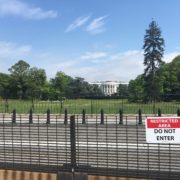
We’re collecting all existing examples of cities’ user personas for open data and government websites, and developing best practices for other cities that are looking to create them.
Continue readingNational Archives publishes online dashboard of its investigations into lost, altered or destroyed public records

In spring 2018, for the first time the National Archives and Record Administration (NARA) has begun using the Internet to inform the American public about its ongoing investigations of unauthorized dispositions in an online dashboard. In a year that continues to be marked by regression on open government, this is a welcome development that shines a bright light on a matter of significant public concern.
Continue readingWhy we’re launching the Web Integrity Project

The mission of the Web Integrity Project (WIP) is to monitor changes to government websites, holding our government accountable by revealing shifts in public information and access to Web resources, as well as changes in stated policies and priorities.
Continue readingNew York City commits to open data and open code

New laws passed in New York City in 2017 have made the metropolis an international trailblazer in open government data and algorithmic transparency.
Continue readingChanges to USGS website highlight the importance of search for public access

If the public cannot find a resource in a search result list anymore, can that public information still be said to be accessible? Yes, and no.
Continue readingOPEN Government Data Act poised to pass Congress as part of NDAA

On Monday, the United States Senate quietly passed the OPEN Government Data Act as part of the 2018 National Defense... View Article
Continue readingWhat we’ve learned about the Trump administration’s changes to government websites won’t shock you

In 2017, there have been major reductions to public access to public information about the environment, energy, and climate change on federal websites, including EPA, DOE, DOT, Interior, State, USDA and the White House.
Continue readingWhy we’re joining Sunlight to report on public access to public information

We're monitoring changes public access to public information on federal government websites under the Trump administration.
Continue readingOpen, private and secure by default: US Census Bureau to switch API from HTTP to HTTPS

The United States should be open, secure and protect the privacy of its people by default when it discloses information to the public. When those principles are written not only in the legal code but software code, the public benefits.
Continue readingTrump, Threats to Data, and US Cities

Sunlight's John Wonderlich reflects on the Trump administration's relationship with data, the difficulty in reporting on broad trends in data transparency, and the role US cities increasingly play.
Continue reading
